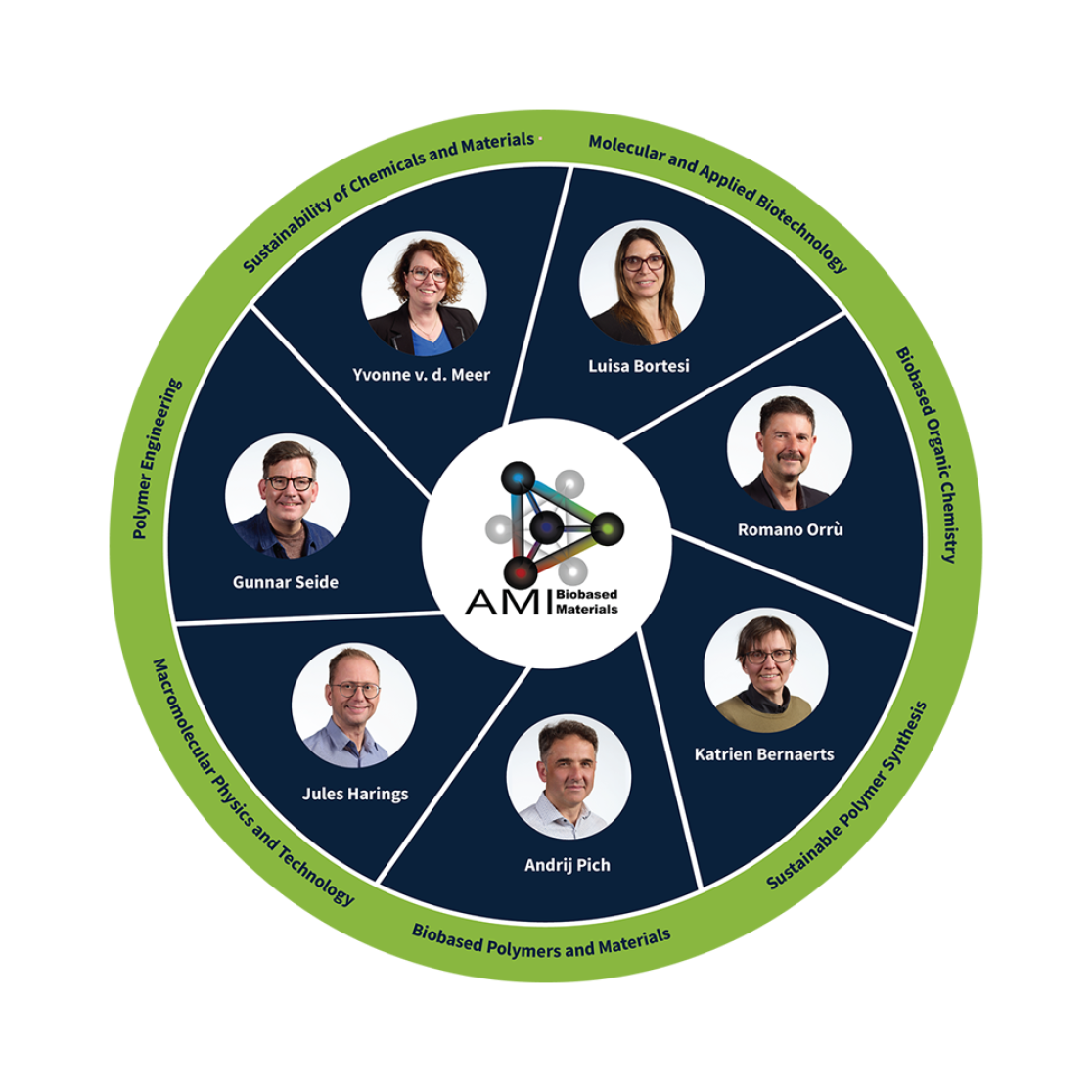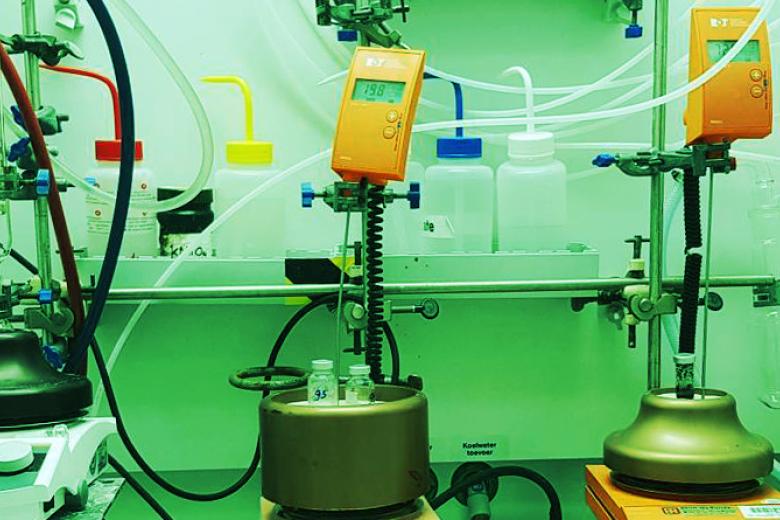Research
The AMIBM vision is to provide the missing links between fundamental, applied and translational research in the field of biobased materials, by changing the relationship between the production of biobased materials and the value circle. This will be achieved by developing an integrated, interdisciplinary research program focusing on novel strategies to produce advanced biobased materials and chemical building blocks in a sustainable and economical manner, and to develop these novel materials into innovative products for technical and medical applications.
Biobased Materials are materials that are (partly) made from biological components. Over the past decades it has become clear that the chemical industry has to look for biological renewable feedstocks to produce sustainable plastics and materials in the immediate future. Alternative sources also provide the opportunity to develop materials with new and advanced properties for all kinds of applications.
Unique Selling Point
AMIBM is an independent academic institute attracting scientists from all over the world to the Brightlands Chemelot Campus, one of the chemical sites of Europe, powered by Maastricht University, RWTH Aachen University, Fraunhofer IME and DWI Leibniz Institute for Interactive Materials.
AMIBM creates added value at any step in the value circle from biobased molecules, processes and materials into applications. AMIBM offers transdisciplinary competence teams including experts from biotechnology, chemistry, material science, engineering, medicine and sustainability.
Value circle
The AMIBM conducts research on biobased materials in a so-called value circle approach, spanning new and modified high quality biological sources, new chemical building blocks, new polymer chemistry and polymer physics, polymer processing and innovative technical and medical textile applications. In all these areas, the AMIBM focuses on the sustainability of materials and processes from resource to application and recycling of materials.
The aim is to create new materials in a cleaner world, making use of biobased renewable resources.

Research groups
Molecular and Applied Biotechnology
The mission of the Molecular and applied biotechnology research group is to develop enabling technologies for the sustainable production of biobased building blocks and materials by optimising plants and microbes.

Biobased Organic Chemistry
Our overall mission is to deliver clean, atom-and step-efficient one-pot syntheses for sustainable production of molecular diverse and structurally complex organic molecules tailored towards higher added-value in materials, medicines and catalysts.

Sustainable Polymer Synthesis
We synthesize new functional polymers from renewable, bio-based sources using cutting-edge polymerization techniques.

Macromolecular Physics and Technology
The Polymer physics and technology research line bridges polymer chemistry with polymer physics addressing molecular and physical characteristics of the synthesised polymers including structure development at the quiescent and defined flow conditions.

Polymer Engineering
The Polymer engineering group develops and demonstrates high-performance materials based on biobased molecules.

Sustainability of Chemicals and Materials
The Sustainability of materials research group investigates the sustainability of materials over their entire life cycle.

Biobased Polymers and Materials
Within the Biobased polymers and materials group, research activities focus on the exploration of biobased macromolecular building blocks such as polyphenols, polysaccharides (chitin, pectin, dextran) and lignin oligomers for the synthesis of functional sustainable polymers and the fabrication of polymer materials in the form of colloidal gels, fibers or films.
